Vanda Felbab-Brown discusses the efforts by Mexican criminal groups to use the COVID-19 economic downturn and lockdowns to build up political capital by distributing handouts to local populations. This piece was originally published by La Reforma’s Mexico Today under the headline “Mexican cartels and the COVID-19 pandemic.”
That Mexican criminal groups have been handing out assistance to local populations in response to the COVID-19 pandemic sweeping through Mexico has generated much attention. Among the Mexican criminal groups that have jumped on the COVID-19 “humanitarian aid” bandwagon are the Cartel Jalisco Nueva Generación (CJNG), the Sinaloa Cartel, Los Viagras, the Gulf Cartel, and some of the Zeta splinter groups. Even President Andrés Manuel López Obrador (AMLO) has felt compelled to comment on the criminal groups’ role as aid providers, dangling again the possibility of amnesty for some of their members.
Mexican criminal groups are clearly using the COVID-19 economic downturn and lockdowns to build up political capital by distributing the handouts. But that should not be a shock to anyone. Around the world, criminal groups — from the Japanese Yakuza to the Sicilian mafia to drug lords in Myanmar and Colombia — have behaved that way for decades. The fact criminal groups do not necessarily seek to topple a government or have an ideology does not mean that they do not seek to build influence with populations and governments. Colombia’s Pablo Escobar would hand out food and throw fiestas; Sinaloa Cartel’s El Chapo gave money for churches and soccer stadiums; and Gulf Cartel’s Osiel Cárdenas Guillén distributed food to the people of southern Tamaulipas in the wake of Hurricane Ingrid in 2013. Militants with political agendas have also appropriated COVID-19 to demonstrate their governance – for example, the Afghan Taliban has handed out soap, preached social distancing and hygiene, and permitted medical teams to enter the territory it controls. The Lebanese Hezbollah, also lately in charge of the Lebanese health ministry, has set up response clinics.
But how much political capital Mexican criminal groups can gain from the current health crisis depends on several factors: Most importantly, it depends on how much better the Mexican government provides COVID-19 relief, if at all. It also depends on how Mexican criminal groups balance their provider side with their extortion and violence side. Falko Ernst has adroitly described how various criminal groups in Mexico continue to battle over territories and extort local populations, despite their gentler handout face. Will a particular group have the capacity to calibrate coercion with responsiveness to and pushback from local communities? Under El Chapo, the Sinaloa Cartel excelled in such calibration. It is not clear that Los Chapitos will have the brains. The fact that CJNG joined the handout frenzy is interesting — a significant evolution of strategy on the part of the group that previously chose to rule solely through brutality. Shrewder criminal groups will ease the level of extortion and not overtax local communities.
But the “capacity to be wise” also depends on the criminal group’s income portfolio. Groups predominantly dependent on local extortion will struggle and may not be able to raise sufficient income to maintain operations as the economic downturn intensifies. If they squeeze local populations and businesses too hard, popular resentment against their rule will grow, including in the form of self-defense forces — inviting in turn attacks by rival criminal groups.
Criminal groups that rely on transactional illicit economies, such as drug trafficking, will be better off. COVID-19 thus reverses what became conventional wisdom among many analysts – namely, Mexican criminal groups that rely on extortion are better off than those who need to worry about long and complex logistical chains.
Yes, in the short-term COVID-19 and the U.S.-Mexico border shutdown have complicated trafficking into the United States. But overcoming the logistical challenges will prove easier than recovering extortion income during an economic recession that could easily last several years in Mexico.
Groups that participate not only in cocaine smuggling from abroad but also protect poppy fields will be best off. Law enforcement assets in Mexico will focus on COVID-19 related lockdowns; and during a significant economic downturn, AMLO will be loath to intensify poppy eradication and thus threaten with further economic immiseration the rural poor who are his core constituency — even under intense US pressure. Criminal groups sponsoring labor-intensive illicit economies like poppy cultivation will not only be able to make money but, critically, also to get political capital from providing jobs in the midst of rising unemployment and recession. And that political capital will be far greater than that coming from the food and soap handouts.
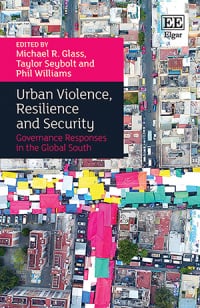
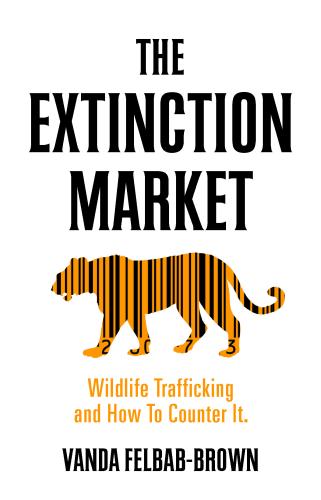
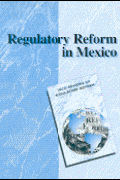
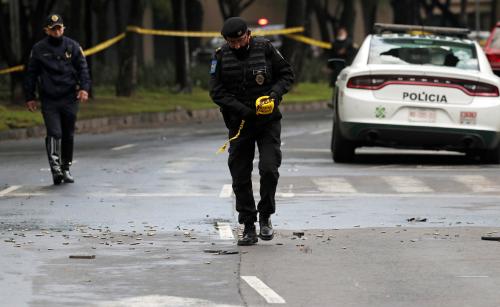
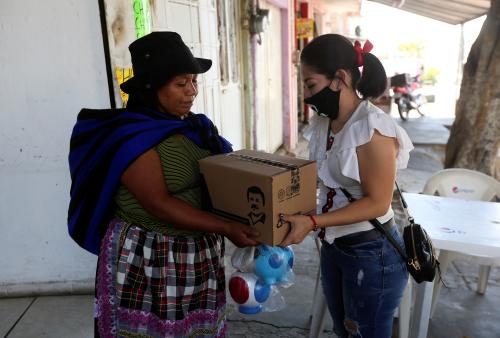
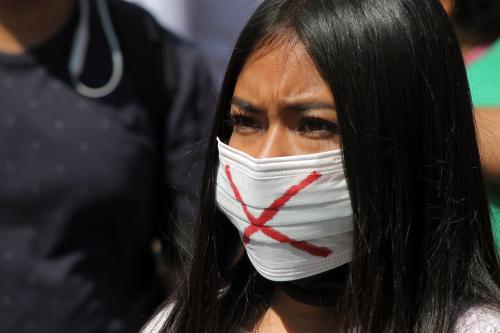


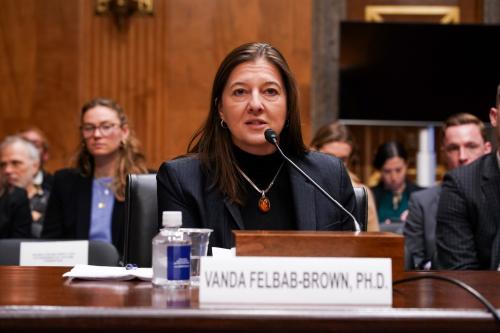
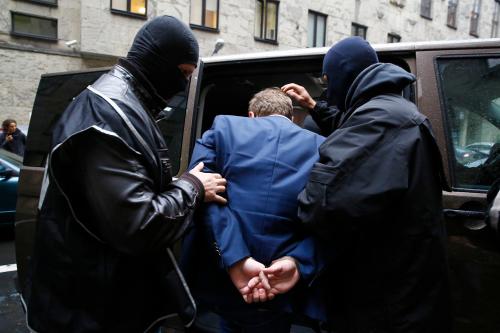
Commentary
Mexican cartels are providing COVID-19 assistance. Why that’s not surprising.
April 27, 2020